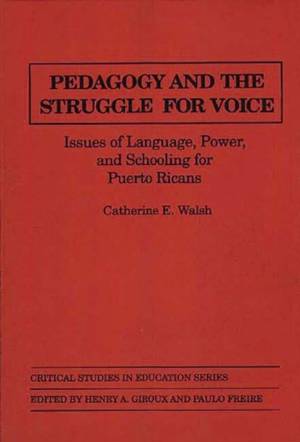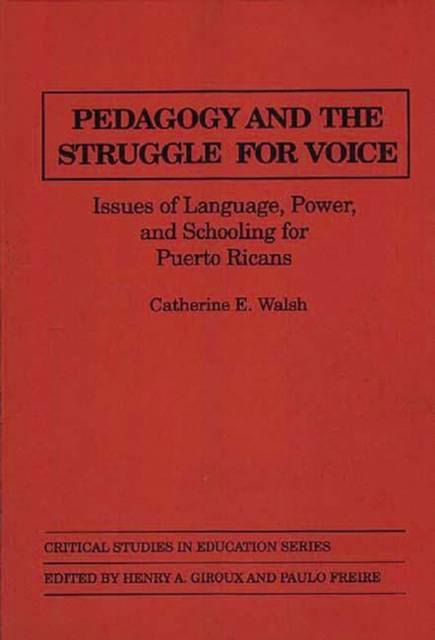
- Retrait gratuit dans votre magasin Club
- 7.000.000 titres dans notre catalogue
- Payer en toute sécurité
- Toujours un magasin près de chez vous
- Retrait gratuit dans votre magasin Club
- 7.000.0000 titres dans notre catalogue
- Payer en toute sécurité
- Toujours un magasin près de chez vous
Pedagogy and the Struggle for Voice
Issues of Language, Power, and Schooling for Puerto Ricans
Catherine E WalshDescription
How often are the perspectives of Puerto Rican students recognized, listened to, and taken into account? Not very often, according to this incisive study which deals with the struggles that these students confront in U.S. schools. As active participants in the shifting balances of power, in the dialectic of language, and in the battle over whose knowledge, experience, and voice are recognized and accepted, Puerto Rican students are uniquely aware of the language and power relation. Their efforts at trying to make sense out of and fashion a voice from the multiple and often contradictory realities that comprise their daily existence, however, are misinterpreted or ignored. This book challenges generally accepted perspectives and practices among teachers and calls for new pedagogies that respond to the complex needs of these students.
Special focus is placed on the effect that colonial status has had historically on the political, socioeconomic, and psychological reality of the Puerto Rican people. Through the voices of Puerto Rican children and those of Puerto Rican and other Latino adolescents, the book explores how the past and present intersect in people's lives, inform pedagogy, and shape the conditions and struggles through which students come to know.Spécifications
Parties prenantes
- Auteur(s) :
- Editeur:
Contenu
- Nombre de pages :
- 192
- Langue:
- Anglais
- Collection :
Caractéristiques
- EAN:
- 9780897892346
- Date de parution :
- 07-12-90
- Format:
- Livre relié
- Format numérique:
- Genaaid
- Dimensions :
- 156 mm x 234 mm
- Poids :
- 449 g

Les avis
Nous publions uniquement les avis qui respectent les conditions requises. Consultez nos conditions pour les avis.






